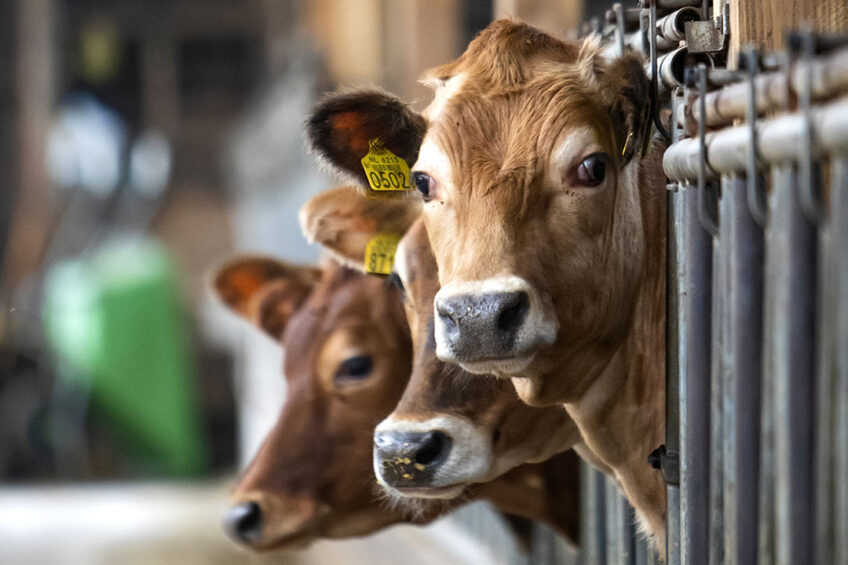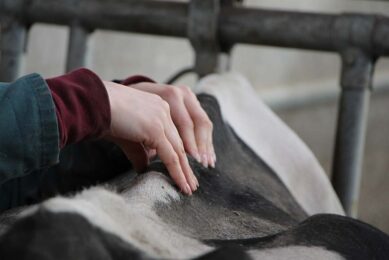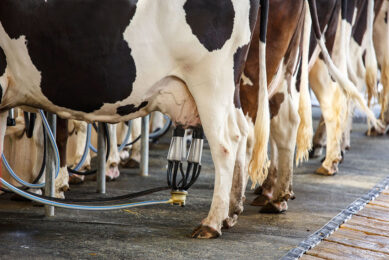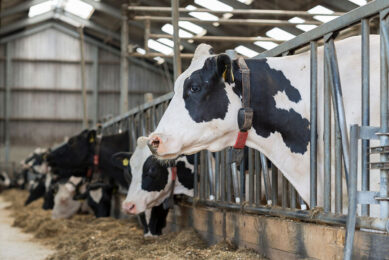Global milk production slowdown due to rise in production costs

Rabobank says a current slowdown in global milk production can be largely attributed to an increase in overall production costs, with steep year-on-year rises in fuel, feed, fertiliser and labour, alongside new Covid restrictions.
Milk production across the Big-7 exporting regions (The US, the EU, New Zealand, Australia, Brazil, Argentina, and Uruguay) contracted year-on-year in Q1 2022 for the third consecutive quarter despite higher farmgate prices. The milk output for the first half of 2022 is expected to decline 0.7% year-on-year.
Impact of war: Feed costs & logistics
“The ongoing war between Russia and Ukraine has caused grains and oilseeds – among several other agricultural commodities and products – to reach unprecedented price levels,” according to Rabobank. “Although fertiliser is flowing from Russian ports, prices remain elevated, resulting in higher feed costs. Producers purchasing feed off-farm will be more susceptible to inflated agricultural commodity prices than producers that grow their own feed.”
Although fertiliser is flowing from Russian ports, prices remain elevated, resulting in higher feed costs.
Also, the current logistical and financial challenges surrounding shipping make imported feeds very expensive, reducing producers’ margins. “On the plus side, strong farmgate prices are partially offsetting rising input costs, with May’s weighted average EU raw milk price up by 3% month-on-month to EUR 47.36 per 100 kg,” Rabobank explains. “In the US, milk production increases are stunted by a smaller dairy herd year-on-year, which is expected to be on par in Q3 2022.”
China: Covid zero-tolerance & lower imports
China’s ongoing zero-tolerance Covid lockdown policy has contributed to lower dairy imports. After a nearly 60,000 metric tons year-on-year increase in WMP imports during the first 2 months of the year, China’s WMP imports from March to May, declined year-on-year by a similar volume, putting year-to-date WMP imports nearly on par with last year’s record pace. Looking forward, Rabobank expects China’s WMP imports to decline year-on-year due to rising domestic production and a slowdown in domestic demand.
China’s dairy production & consumption
According to Chinese media, the output of China’s major dairy companies rose 2.9% year on year in May. Chinese companies produced about 2.76 million tonnes of dairy products last month, data showed. In the January-May period, the dairy output in China climbed 0.9% year-on-year to nearly 12.43 million tons.
Household dairy consumption jumped in China during the past 2 years, with per capita consumption rising 11.8% year-on-year to 42.3 kg in 2021. The country’s output of dairy products is expected to reach nearly 54 million tons in 2031.
Global dairy prices
Global dairy prices have dropped in the latest Global Dairy Trade auction, held 21 June. The average price at the fortnightly sale dipped 1.3% to US $4,600 per metric ton. In the previous auction on 7 June, prices rose 1.5%. That was the first lift in 3 months.
Whole milk powder (WMP) fell 0.6%, on the back of a 0.3% decline in the previous event, to an average US $4,125 per MT.
Skim milk powder (SMP) was up 1% to an average US $4,276 per MT. SMP rose 3% in the previous auction.
Butter also rose, with a 2.4% increase to an average US $6,213 per MT. It rose 5.6% in the previous auction.
Australian dairy processors raising milk prices
In Australia, dairy processors are raising their milk prices. Most processors are now offering more than AUS $9.00 (US $6.24) per kg milk solids. Bulla Dairy Foods is now one of the top paying processors. It has announced that suppliers in the top price band will receive an average weighted price of AUS $9.80 (US $6.80) per kg milk solids.
The Australian Dairy Farmers Corporation earlier announced an average seasonal price of AUS $9.55 (US $6.62) per kg milk solids for the 2022-2023 season. Fonterra had earlier joined Bega and Saputo in raising the average farmgate price above AUS $9.00 (US $6.24) per kg.
Join 13,000+ subscribers
Subscribe to our newsletter to stay updated about all the need-to-know content in the dairy sector, two times a week.










